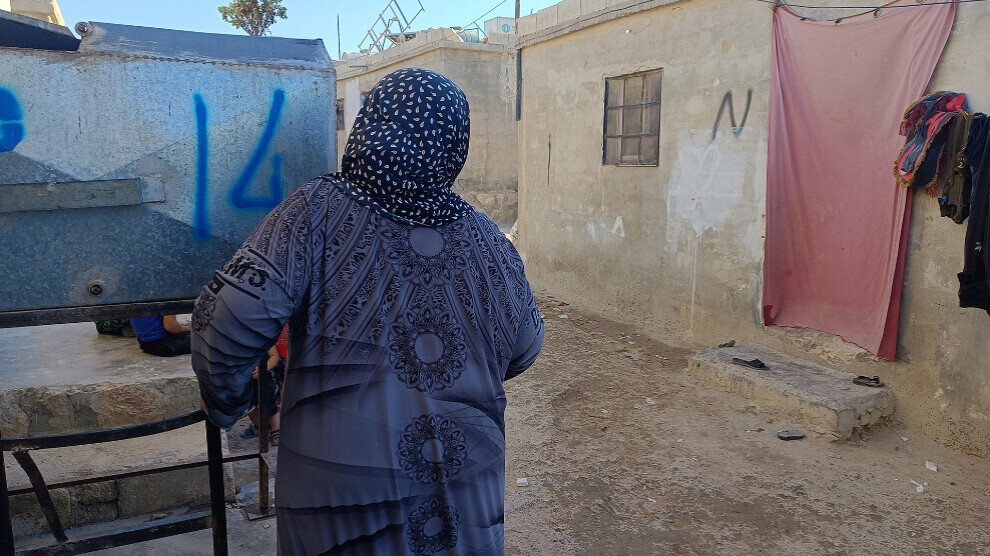Lack of clean water in Idlib’s IDPs camps causes spread of infectious diseases
The IDPs camps in the occupied Idlib suffer from the lack of clean drinking water. “Clean drinking water should be provided to the camps as soon as possible,” said Dr Yasmine Al-Halabi.

HADEEL AL-OMAR
Idlib- The displaced people living in IDPs camps in the occupied Idlib have been suffering from the lack of food, health services and clean drinking water. Women and children have been suffering from the lack of basic services the most. Women living in the IDPs camps located in Idlib’s Atme and Kili towns, occupied by the Turkish state and its armed faction Hay'at Tahrir al-Sham (HTS), told NuJINHA that the limited clean water supplied to them did not meet their needs.
‘I can only get 100 liters of clean water a day’
37-year-old Adawiya Al-Rustom lives in an IDPs camp in the town of Atme. She told us that she could only get 100 liters of clean water a day. “We face many difficulties in the camp, especially in summer. I live near the garbage dump and I cannot get sufficient clean water to cook or drink. We used to carry water from an old and abandoned well to take showers and clean our shelter; however, we stopped using water from the well because my daughter got sick. Our financial situation is too bad to buy water so I try to meet our needs according to the amount of water given to us.”
‘More people suffer from health problems’
33-year-old Noha Al-Zaidan lives in an IDPs camp in the town of Kili. She told us that health problems such as diarrhea, hepatitis, herpes and scabies spread in the camp due to the use of dirty and unsafe water. “We have to buy clean water due to the spread of diseases in the camp. We face many problems in the camp. The residents of the camp suffer from cholera, typhoid and many other infectious diseases due to the lack of clean water. We urgently need drinking water,” said Noha Al-Zaidan.
‘Infectious diseases have increased’
Yasmine Al-Halabi is a doctor in Idlib. Speaking about health problems faced by the displaced people in the camps, she said, “Women and children suffer from health problems due to the lack of clean water in the camps. Every day, at least eight women are diagnosed with skin diseases and urinary tract infections as a result of consuming unclean water. Infectious diseases have increased in the camps due to unclean and unsafe water. Clean drinking water should be provided to the camps as soon as possible to prevent the spread of diseases.”
